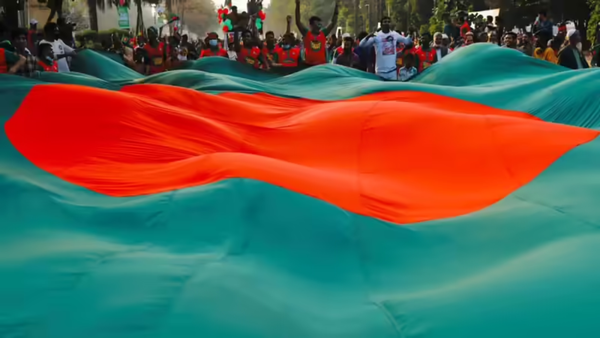A claim by the Centre that the President, and not the Tamil Nadu Governor, has "exclusive power" to decide Rajiv Gandhi assassination convict A.G. Perarivalan's plea for pardon drew flak from the Supreme Court on Wednesday before it reserved the case for judgment.
A three-judge Bench led by Justice L. Nageswara Rao said the government's argument, if taken on face value, would leave Article 161 (the constitutional power of Governors of States to grant pardon) a "dead-letter".
"So, according to you, the power to grant pardon is exclusively that of the President... Well, in that case, pardons granted by Governors throughout the history of this nation across States are all null and void?" Justice B.R. Gavai quizzed Additional Solicitor General K.M. Natraj, appearing for the Centre.
The court said then by the Centre's logic every murder case convict would have to move the President for pardon.
"The end result of your submissions is that all pardons granted for IPC offences by Governors all these years are unconstitutional... If we try to accept your submissions, it would mean the President would have the exclusive power to grant pardons... So, over the period of 70-75 years, all pardons granted under Article 161 by Governors for IPC are unconstitutional!" Justice Rao exclaimed at the nature of the Centre's submissions.
The court was hearing the Centre's defence of the Tamil Nadu Governor's conduct of sitting for years together without acting on the advice of the State government to pardon and release Perarivalan, and topping it off by referring the file to the President without taking a decision.
"Please enlighten us about the constitutional provision which enables the Governor to refer a pardon plea filed under Article 161 to the President?" Justices Rao and Gavai, accompanied by Justice A.S. Bopanna on the Bench, asked the Centre.
Mr. Natraj replied that the Tamil Nadu government had tried to "usurp" the power of the President and the Centre to decide on the question of pardon.
"The power was conferred on us [the Centre] to advice the President on the question of pardon," Mr. Natraj replied defensively.
"By that analogy, if a pardon is sought in a murder case, the Governor should refer it to the President?" Justice Gavai asked.
Perarivalan was sentenced to life sentence for murder. Terrorism charges were earlier withdrawn.
‘What is your locus standi?’
Justice Rao intervened, asking why the Centre was representing the Governor in the case.
"What is your locus standi to represent the Governor?" the judge queried.
Mr. Natraj reasoned that the Governor was a constitutional office. "And when the system is not functioning as per the constitutional mandate, anybody can bring it to the notice of the court," the lawyer argued.
"The Governor is the head of the State. He represents the State concerned. If at all somebody has to speak for the Governor, it will be the State and not the Centre," Justice Rao responded.
The court had, in the previous hearing, given two options in the case. One, to release Perarivalan who has suffered over 30 years in prison. The other, for the Centre to argue and have the case decided on merits. The Centre chose the latter.
Perarivalan, represented by senior advocate Gopal Sankaranarayanan and advocate Prabu Ramasubramanian, had approached the apex court against the prolonged delay and lack of decision on the part of the Tamil Nadu Governor on his pardon plea.







